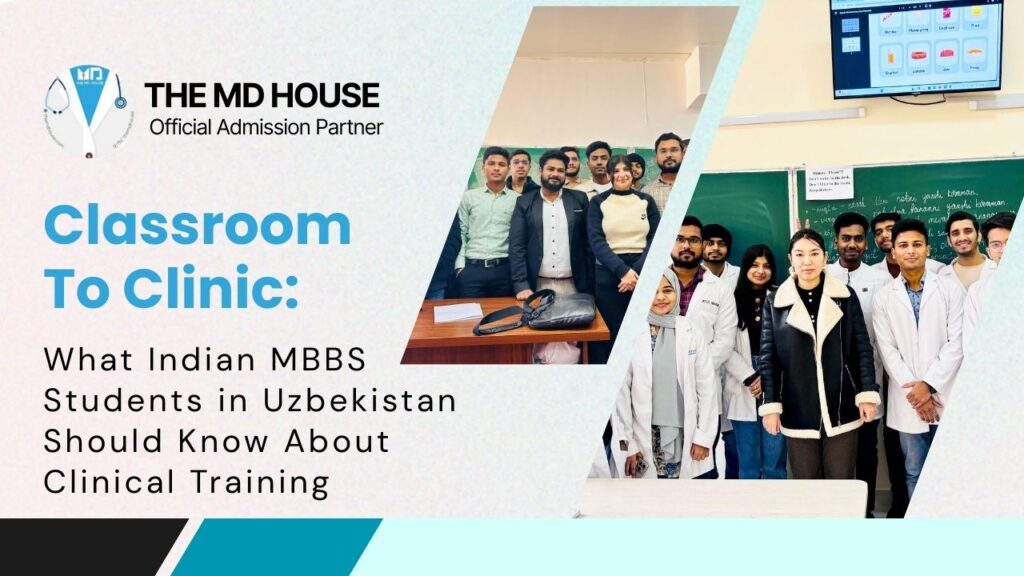
Clinical exposure is the most important part of an MBBS course program, and Uzbekistan is no exception to this rule. Uzbek universities prioritize clinical training in MBBS in Uzbekistan for Indian students. They understand the value of practical knowledge and hands-on experience in diagnosing disease and providing treatments. They create an inclusive environment for students to enhance their skills.
When Clinical Training Begins?
The training starts from the third year of the MBBS program and continues till the completion of the course. It involves interacting with patients, understanding symptoms of illness, identifying diseases with correct diagnosis, prescribing medicines according to diagnosis, and following up with patients. The training helps build confidence, improve communication, and enhance medical skills.
What Clinical Facilities Provided?
Medical universities send MBBS students to affiliated healthcare facilities where they are accommodated in the departments matching their academic qualifications. The good thing is that all these hospitals have the best healthcare facilities in the country. They have state-of-the-art diagnostic tools, world-class operating theatres, and highly qualified and experienced medical staff. Students learn and develop practical skills from senior doctors and surgeons.
What Is Included In Clinical Training?
Students are sent to hospitals for clinical training during MBBS in Uzbekistan. The objective is to allow students to learn and develop clinical skills. Here, it is necessary to mention that hospitals ensure that patients get the best medical care and attention. The objective of involving MBBS students in the medical service is to help develop clinical skills. There are many skills that students can learn and develop only in hospitals.
How Students Overcome Language and Communication Challenges?
MBBS students get their education in English medium, but they can’t use the international language in hospitals. They must be proficient in the local language, such as Russian or Uzbek, to communicate with patients and fellow medical professionals. Universities conduct language classes for students. They ensure language doesn’t become a barrier in clinical training. Students are also learning new languages that help in professional development.
Do Students Learn Professionalism and Ethics?
Clinical training develops professionalism and ethics in MBBS students. They work in a professional environment, following all rules of medical services. They learn to be compassionate towards patients and also maintain the confidentiality of patients. Their job is to educate patients about the diagnosis and treatment. They learn how to take patients into confidence to get their consent for surgical treatments. This training prepares them for bigger roles in the healthcare sector.
Does Clinical Training Help In the FMGE Exam?
Uzbekistan universities share students’ concerns about the FMGE exam. For this reason, they align clinical training with the preparation for the licensing exam. During training, they learn more than they could in classrooms or from books. This training helps prepare for the licensing exam in the long run.
Indian students going to study MBBS in Uzbekistan should be ready to undergo detailed clinical training during their studies. This training is necessary for their overall development and achieving career goals. The clinical training is provided under the supervision of qualified and senior doctors of the country.

0 Comments